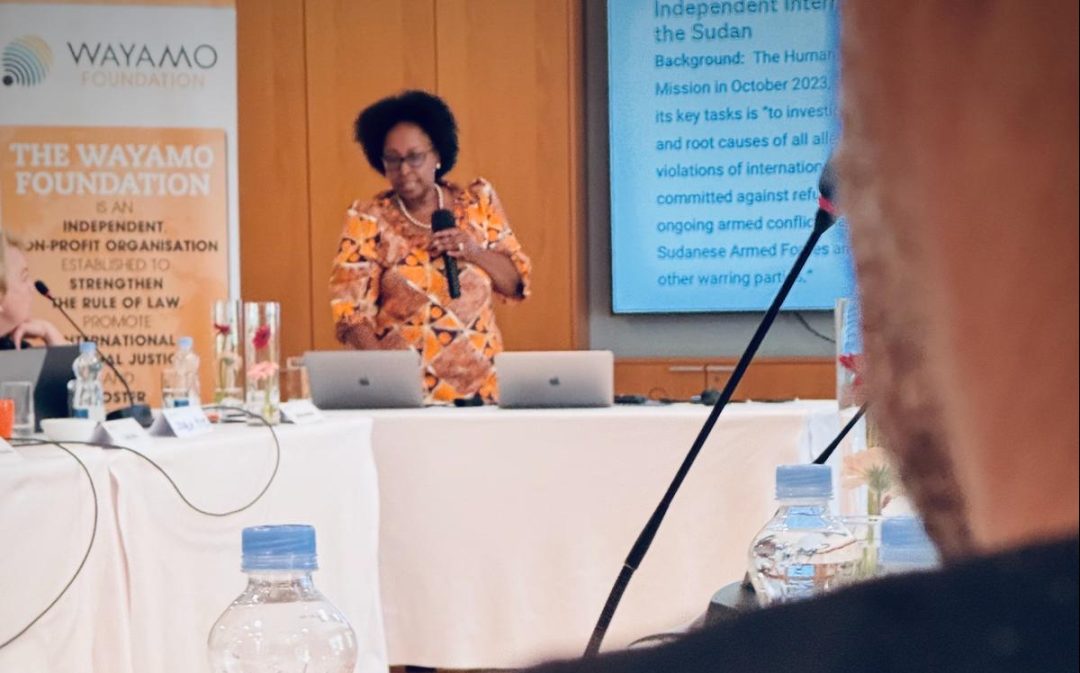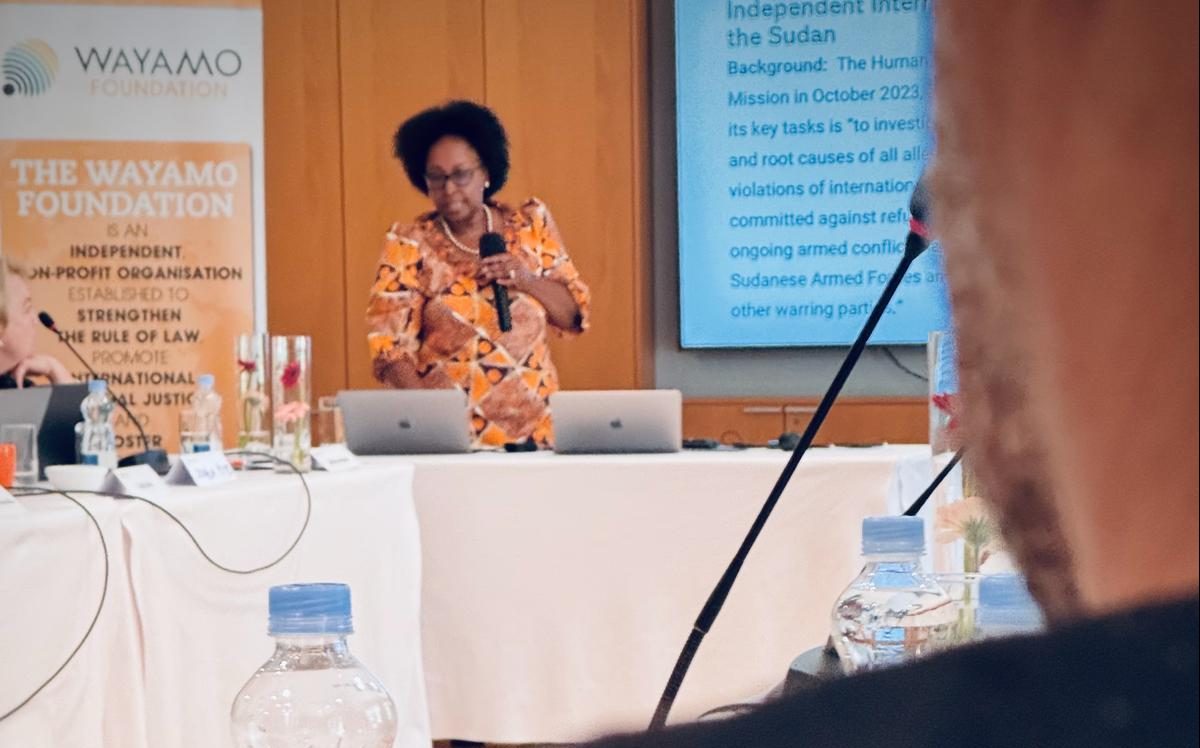The Wayamo Foundation held a comprehensive, three-day legal workshop in Nairobi, Kenya, from 11–13 March 2024, on the theme “Beyond advocacy: advancing accountability through effective documentation efforts”, bringing together a diverse group of participants including Sudanese lawyers, human rights defenders, and representatives from civil society.
The workshop focused on guiding participants through the transition from documentation efforts primarily geared towards advocacy, to documentation aimed at fostering accountability in international criminal cases. The workshop centred the discussions on the intricate components of international criminal cases, exploring how these building blocks contribute to putting together robust legal cases. The event examined a number of key topics, including international humanitarian law and international criminal law, command responsibility, linkage evidence, minimum standards for documentation efforts aimed at ensuring accountability, and the ethical considerations surrounding unofficial investigations.
Bettina Ambach, Wayamo Foundation Director, opened the workshop by expressing her gratitude for the participants’ attendance and their invaluable contributions to the documentation of human rights violations and international crimes in Sudan. She emphasised the importance of their work in eventually pursuing accountability initiatives for Sudan through various avenues, including the exercise of universal jurisdiction. The event also served as an opportunity to launch the Sudan Justice hub, a bilingual English-Arabic platform, supported by the Ministry of Foreign Affairs of The Netherlands and the German Federal Foreign Office, which consolidates print and multimedia materials relating to the ongoing conflict in Sudan, regional and international experiences with justice, and tools that empower Sudanese civil society actors to respond to ongoing violations in the country. This session was led by Linda Bore, International Criminal Lawyer and Project Coordinator and Samah Mohammed, Legal Researcher and Project Officer, both of the Wayamo Foundation. The workshop, held under Chatham House rules, fostered an environment conducive to open and candid discussions. The interactive nature of the event facilitated extensive teamwork, allowing attendees to share insights on their work and experiences.
Participants engaged with a series of experts, including:
- Betty Murungi, Transitional Justice expert, advocate of the High Court of Kenya and member of the Africa Group for Justice and Accountability,
- Abdalbasit Mohamed, Legal and Research Officer, Wayamo Foundation,
- Amanda Ghahremani, Legal Consultant, International Criminal Law & Redress for Survivors of Atrocity Crimes
- Bill Wiley, Executive Director, Commission for International Justice and Accountability
-
Eric Iverson, Trial Lawyer, Office of the Prosecutor, ICC
- Bill Rosato, Senior Investigator, Office of the Prosecutor, International Criminal Court (ICC)
- Mahasin Dahab, Mnemonic Sudanese Archive
- Kirsty Hare, Programme Manager, Legal Action Worldwide
- Linda Bore, International Criminal Lawyer and Project Coordinator
- Mikel Delagrange, Senior Legal Advisor Wayamo Foundation.
Furthermore, a representative from the Ministry of Foreign Affairs of The Netherlands observed the workshop proceedings for all three days, underscoring the importance and impact of the discussions and initiatives facilitated by the Wayamo Foundation.
Overall, the workshop served as a platform for lively discussions, knowledge-sharing, and collaborative efforts aimed at advancing accountability and justice in Sudan and beyond.
The workshop was held in the context of Wayamo’s ongoing “Capacity building for civil society and the justice sector in Sudan” project, which provides training in international criminal law, international humanitarian law and human rights to civil society and legal actors both in Sudan and the East African region, specifically Kenya, aimed at building a coalition committed to addressing impunity through regional and domestic accountability measures, such as national court systems.



